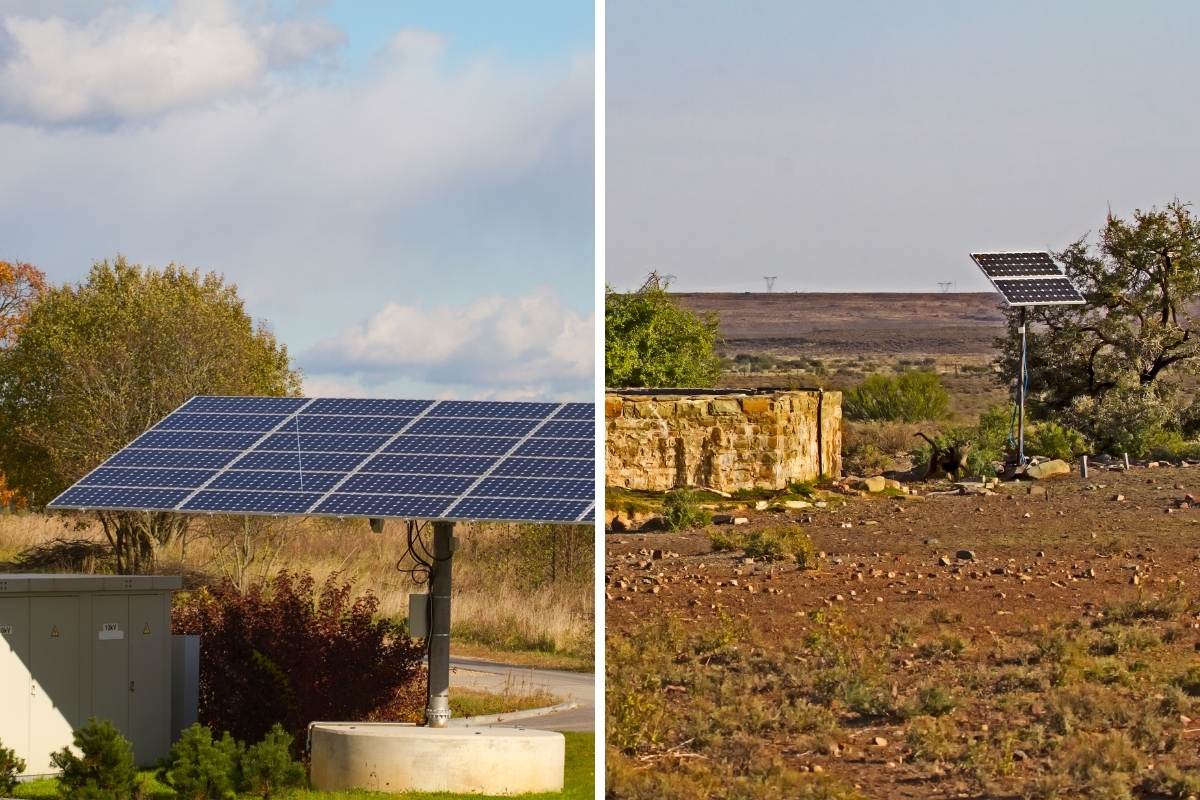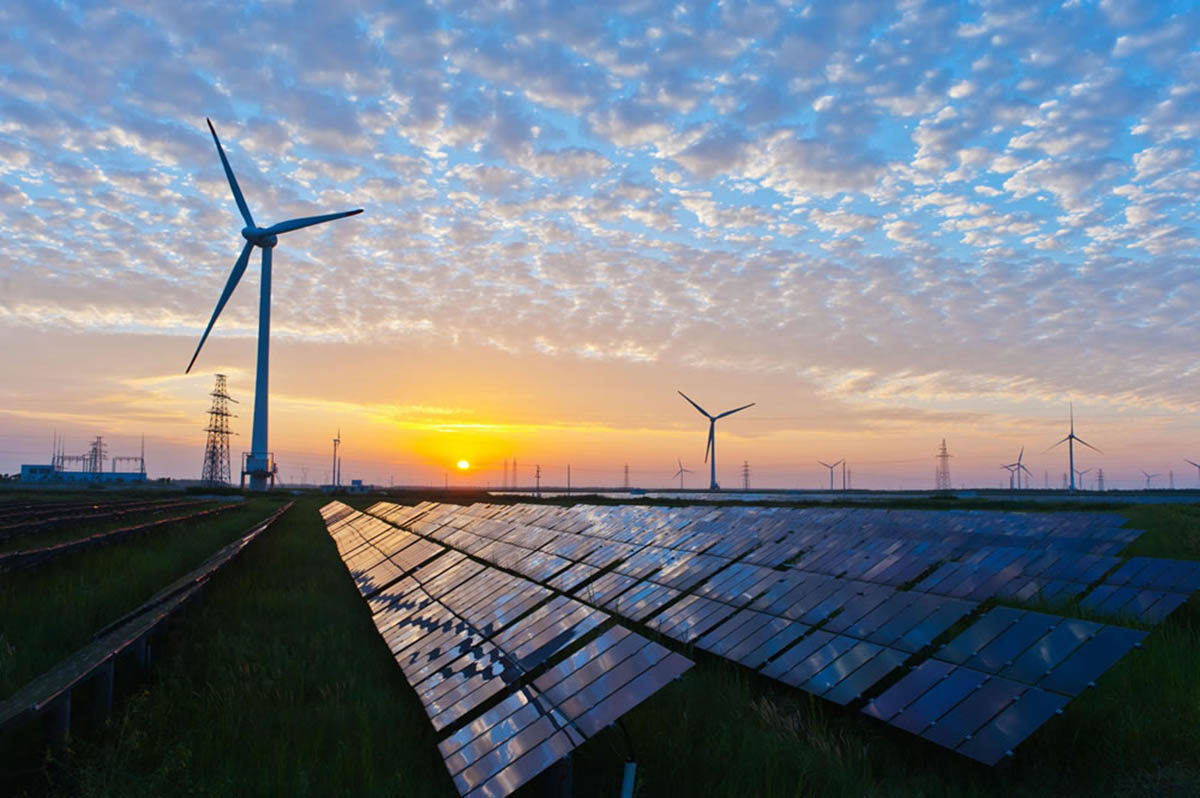How Is Solar Power Being Used In Developing Countries?

Africa and Asia are homes to many of the world’s developing countries. Interestingly, most African countries experience strong sunlight for about 325 days per year, amounting to over 6kWh/m2 of energy daily. But solar power in developing countries is the least harnessed due to the lack of capacity and knowledge needed to convert such power into useable electricity. Although, China and India are quickly evolving with the pace.
So, how is solar power used in developing countries? The most common solar power applications are for houses and water heaters. Moreover, these countries have also devised means to use solar energy to power electric devices. Please continue reading to learn more about solar power and its uses in developing countries.
Solar power in developing countries
Water for both domestic and commercial use
Solar water pumps are growing in popularity in these developing countries. If harnessed, these pumps can be used by farmers to irrigate their farmlands. Furthermore, this reduces the dependence of these farmers on grid electricity and fossil fuel.
With little concern about inconsistent rainfall patterns, these farmers can enhance their agriculture with minimal input. More so, solar water pumps are less expensive to maintain than the traditional diesel generators previously used for such purposes. In addition, they cost significantly less for the maintenance of the pumps.
Easy access to clean, renewable energy
Due to the harmful gases emitted into the atmosphere from coal-related power systems, renewable energy is the new way to go. More so, installing solar systems in homes is affordable for most homeowners in developing countries.
More so, investments in solar home systems yield full returns as installation and maintenance are less expensive than the current electricity bills. Furthermore, residents of these developing countries have very little to worry about during times when there’s little sunshine and night. Solar batteries and storage systems allow users to save some electrical energy for future use.
Job creation opportunities
According to a 2020 report from U.S. State Energy and Employment, about 344,000 people in America are employed in the solar industry as of late 2019. This is just a small percentage of about 3.3 million Americans employed in the renewable energy sector. Furthermore, this industry is a major U.S. employer.
This figure way outnumbers that of people employed in the fossil fuel sector. Many forward-thinking governments in these developing countries are already embracing solar energy in their economy and are reaping the job creation benefits. In India, for example, the solar power sector created 23,884 jobs cumulatively between 2011 and 2014.
Moreover, these figures can be improved if companies support the solar energy market by providing jobs for their projects. Businesses and policymakers can formulate better programs and policies by monitoring and reporting job numbers. In turn, this will project the importance of solar energy to the local economy.
Improved economy
One of the benefits drawn from solar power in developing countries is the reduced bills citizens have to pay for utilities. In some countries, energy providers pay homeowners for excess electricity produced by solar panels installed in their homes. The homeowners receive such payments in the form of extra energy units.
Citizens use such compensation effectively by accumulating such credits in the summer. They can use them in months when the energy production is lower, resulting from limited sunshine. Furthermore, the governments of some states provide solar tax incentives and credits for their citizens.
Effects of solar power on the environment
Many industrial cities in developing countries are considered unsafe due to the large amount of GHG in the atmosphere. These gases make the air in these regions quite unsafe to breathe. More so, such conditions pose threats to the human respiratory system.
The greenhouse gas emissions from solar energy are quite negligible since the technology doesn’t combust any fuels. Also, solar energy plants have little to no need for water. In addition, it doesn’t pollute any water body.
Thankfully, many homes in these countries, especially urban ones, have adopted solar home systems. Another endearing part of this technology is that the energy production processes in solar plants are noiseless. Lastly, there are no wastes produced from running these plants.
Setbacks of solar power
High initial costs
One of the factors that make people fall back on traditional power sources is the high cost of the initial installation of solar systems. Expenses will require purchasing batteries, wiring, solar panels, and an inverter.
Also, they’ll have to pay a technician for the installation. Since the technology is still in its growth stage, there are high hopes for lower costs in the future.
It is weather-dependent
To effectively gather solar energy, solar systems depend on sunlight. The efficiency of the system drops on rainy or cloudy days. So, you may have to resort to other power sources if you have several days in a row with no sunlight.
Luckily, you can save much energy in batteries for future use or in cases of emergency. However, batteries used to store solar energy are pretty expensive.
Solar panels contain some harmful materials
Some hazardous products and harmful materials are used while manufacturing PV systems. If not appropriately controlled, this can indirectly affect the environment. However, there are provisions for owners to recycle their solar systems once it’s no more useable.
But sadly, not everyone can do this. Regardless, solar energy systems are far safer than many other energy sources.
Takes some space
Photovoltaic panels have to be mounted to have direct contact with rays of sunlight. The higher the electricity you want, the larger the solar panels you need to install. If your rooftop is not large enough, you’ll have to consider an alternative.
The best that we can offer to future generations is a sustainable economy and a working system. Solar power in developing countries and other parts of the world is a precious gift from nature. This also extends to other clean, renewable energy sources such as wind and biomass.
In developing countries, the solar energy sector has created employment opportunities for many. Some governments have utilized this technology to provide their citizens with a better standard of living. More people now have access to better education, healthcare, and other facilities.




